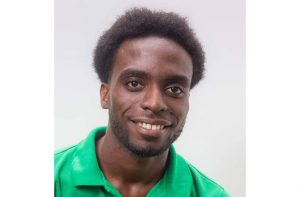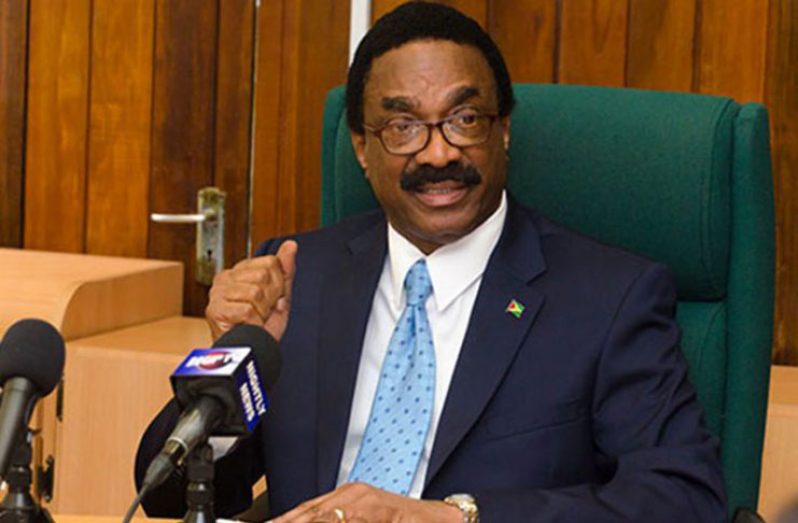Ensuring that democracy is maintained is paramount to ensuring that a country is run with the best interest of all its peoples in mind, so that all citizens are afforded and access to the resources, services and opportunities. With the quest of a ‘good life’ as the foundation of the current Administration’s mandate, Government is committed to ensuring the tenets of democracy are maintained.
It is with this in mind that Government has pledged to ensure that Guyana’s Constitution is respected and upheld and this includes the defence of the provision, which states that a President is eligible for re-election only once. Government has already indicated its intention to proceed to the Caribbean Court of Justice (CCJ) following the flawed determination by the Appeals Court that the term limit is unconstitutional.
In 2001, Act No. 17 amended Article 90 of the 1980 Constitution and held that a person elected as President could hold only two terms in office. The amendment was assented to by then President Bharrat Jagdeo, but in February 2015, a private citizen, Mr. Cedric Richardson, filed a constitutional challenge regarding the two-term limit for the country’s presidency.

Richardson’s case sought an interpretation from the Court on the provisions in the Constitution. The matter appeared before then Chief Justice Ian Chang and on July 9, 2015, Justice Chang in his written ruling said that Act 17 of 2001 needed a referendum and is invalid and without legal effect for reason of non-compliance. Attorney General and Minister of Legal Affairs, Mr. Basil Williams, in August 2015 then filed an appeal in the Court of Appeal of the Supreme Court stating that he is “dissatisfied with the whole of the decision” handed down by Chang.
The matter was finally set for a ruling on February 21, this year, by the former Chancellor of the Judiciary, Justice Carl Singh. Justice B.S. Roy and Justice Yonette Cummings Edwards were also on the panel, which looked at the case, and on February 22, Justice Roy and Chancellor Singh voted to uphold Chief Justice Chang’s 2015 ruling while Chief Justice Cummings-Edwards voted against it.
For legal practitioners like the former Judge Justice Duke Pollard, it is a decision that is deeply flawed and contrary to the Constitution. In a letter published in the Stabroek News on July 11, 2015, Justice Pollard said, ”The judgment is arguably tendentious, occasionally pleonastic, bereft of sustained rationality, and strangely and curiously, not to mention inexcusably, has eschewed the application of the required rule of statutory interpretation in construing the provisions of Article 1 of the Guyana Constitution, given the concatenation of genus-describing attributes employed therein.” The recent ruling has led to Government’s position to take its case to the Caribbean Court of Justice for a final ruling, where it is confident the right decision will be made.
Members of the Public expressed the view that the ruling does not auger well for the country’s democracy. Eon Bollers believes that different persons should hold the Office of President in order to ensure a different perspective. “In my opinion there are other people out there with ideas that they can contribute in terms of the development of Guyana so two terms should be enough,” he said. For Mr. Kenneth Wilson, it is unthinkable that any one person could run for the Presidency for as long as he or she wants. “We have to wait to see what the Caribbean Court will say. Democracy has failed… it seems as though all the systems are failing because they want to break the rules,” he said.
Meanwhile, the notion that the ruling is not ideal for Guyana’s democracy seems to be one that is shared across the political divide. Former President Donald Ramotar, as well as members of the People’s National Congress Reform (PNC/R) and the Alliance For Change (AFC) have all stated positions in opposition of that ruling. Mr. Ramotar, in 2015, days after the Constitutional motion was filed in the High Court, said that neither he nor the People’s Progressive Party/Civic (PPP/C) was supportive of any President being able to run for more than two terms in that office. In a Stabroek News article dated November 2, 2015, Mr. Ramotar said “I think with two terms, it’s enough for any President.”
Leader of the AFC, Mr. Raphael Trotman, who was also named in the case, said that the ruling by Chancellor Singh and the High Court is tantamount to a threat to the democracy of the country. Mr. Trotman said that the AFC believes that the ruling was an error. “I was a part of the Constitutional reform. I was a member of the dialogue team and it was agreed and accepted that we would have term limits. All parties in Parliament agreed and we even had legal opinion, which said that we didn’t need a referendum. In fact, we set up a number of other institutions like the Rice Commission and so it is strange that this one was plucked out and set apart,” he said.
Mr. Trotman said that the AFC is supportive of the intention of the Government to take the case to CCJ for a final determination. “Our democracy is under threat because we believe that given the makeup of Guyana, our history of division and ethnic tension that no one party or President should be in power for more than two terms and for us to have a reversal means we will be going right back to some dark days. So we look forward to getting to the CCJ and we have no doubt that justice and good sense will prevail and the ruling will be overturned,” he said.

The Guyana Youth and Student Movement (GYSM), which is the youth arm of the PNC/R also endorsed the views of the other political entities. According to Mr. Brian Smith, National Secretary of the GYSM, the decision is disappointing and the GYSM believes that it does not communicate the general sentiment of the populace. “The spirit of the limiting of terms speaks to an understanding that there is need for, from time after time, a new beginning; a new appreciation; new leadership. What we find happening is that a judgement in this regard for us is more of a recession in democracy because it tells us that there is a belief, which we don’t subscribe to, that there doesn’t exist competent leadership in our country,” he said.
Meanwhile, Minister of Legal Affairs, Mr. Basil Williams said that Chancellor Singh erred on several grounds when he chose to uphold the 2015 ruling. “The decision was not unanimous. Chancellor Singh and Justice Roy, they had the majority decision and we believe that the ruling, which was given by Chancellor Singh and concurred by Justice of Appeal Roy. We believe that the ruling was flawed in many areas and obviously, we believe that the entire issue must be settled by the Caribbean Court of Justice and so we will make the necessary approaches to that Court but the Chancellor erred on many grounds,” he said.
The Minister said that one of the areas in which Chancellor Singh erred was when he ruled that the introduction of a term limit is diluted democracy in Guyana when in fact democracy is enhanced. “When you see in practice there were three elections after the coming into effect of the alterations in Article 90. They were three elections and everyone would agree that those three elections successfully were the most peaceful elections in the history since the Independence of Guyana. We saw dynamic changes in the way the results of elections operated,” he said.
Further, explaining the legal contentions with the ruling, the Minister pointed out that the Chancellor held that Mr. Richardson had a right under Article 177 of the Constitution to vote for a Presidential candidate of his choice, when in fact Article 177 gives Parliament, within the ambits of the Constitution, the power to make provisions for the conduct of elections of the office of President. “He hasn’t addressed my contention that there is no direct vote for President in this country and no voter in Guyana determines who would be a Presidential candidate. All of that is for a political party and you vote for a political party and not for a Presidential candidate. So the Presidential candidate is tagged on to a party list and the electorate votes for the party list and when they are voting for the party list, Article 177 says that they are deemed to be voting for the Presidential candidate,” Minister Williams said.
Minister Williams refuted the contention that the term limit infringes on Articles 1 and 9 of the Constitution. “They were required to address the issue of whether the alteration of Article 90 was valid or not. It is clear that it is valid. They now had to go further to show whether it affected Articles 1 and 9. So we are saying that the court erred by not determining whether it was a lawful alteration of Article 90 by a two-thirds majority,” he said.
In Cedric Richardson v Attorney General and Raphael Trotman, the complainant alleged that Act No.17 of 2001 purporting to amend Article 90 of the Guyana Constitution and disqualifying a person from seeking election more than twice as President of Guyana, diminished and restricted his democratic right of choice, and, having not been approved by the electorate in a referendum as required by Article 164(2) of the Guyana Constitution, was constitutionally invalid, void and of no legal effect.
Former Judge Justice Pollard disagrees with this stance and agrees with Minister Williams that on the contrary, the Proviso of Article 164(2) expressly prescribed that there was no need for approval by referendum of the relevant bill since it was passed by a two thirds majority vote and did not alter any provisions of Articles 1 or 9 of the Guyana Constitution. Minister Williams also contended that Justice Singh erred when he ruled that Articles 1 and 9 gave Richardson a personal interest enough to qualify him to bring an originating summons. According to the Minister, those articles are of general application and they do not give any individual rights.
Further, Justice Singh’s ruling also compared judgments in other jurisdictions to the current case. According to Minister Williams, when Justice Singh suggested that the right of voters to vote for candidates of their choice in other countries including the United States of America, he failed to take into account that Guyana’s Constitution and electoral system is not the same as those identified in his ruling. Justice Pollard, certainly no novice to the legal fraternity, is quite convinced in his belief too that the law will prevail and will vindicate the Government’s position as they move to the Caribbean Court of Justice.




.png)









